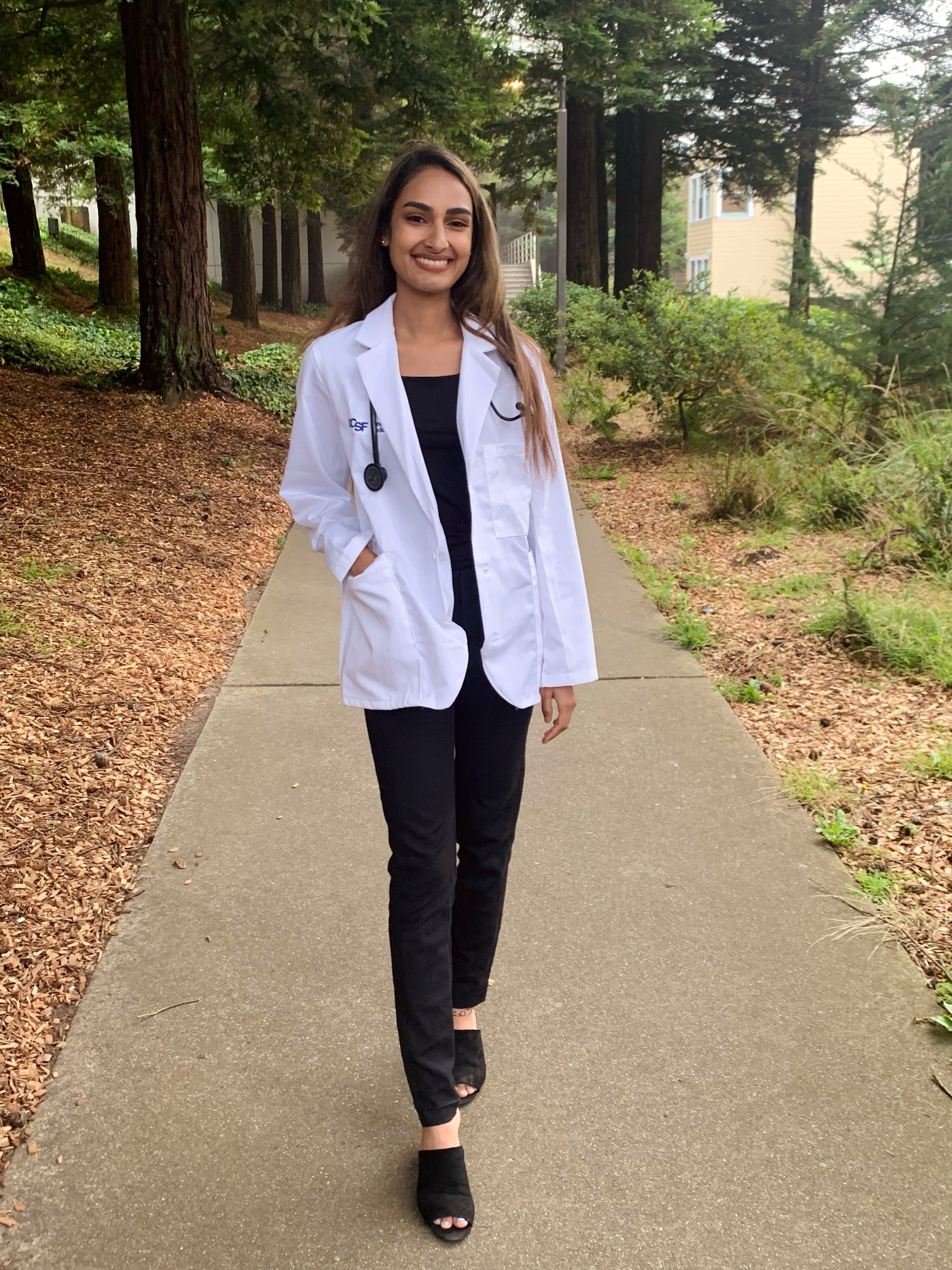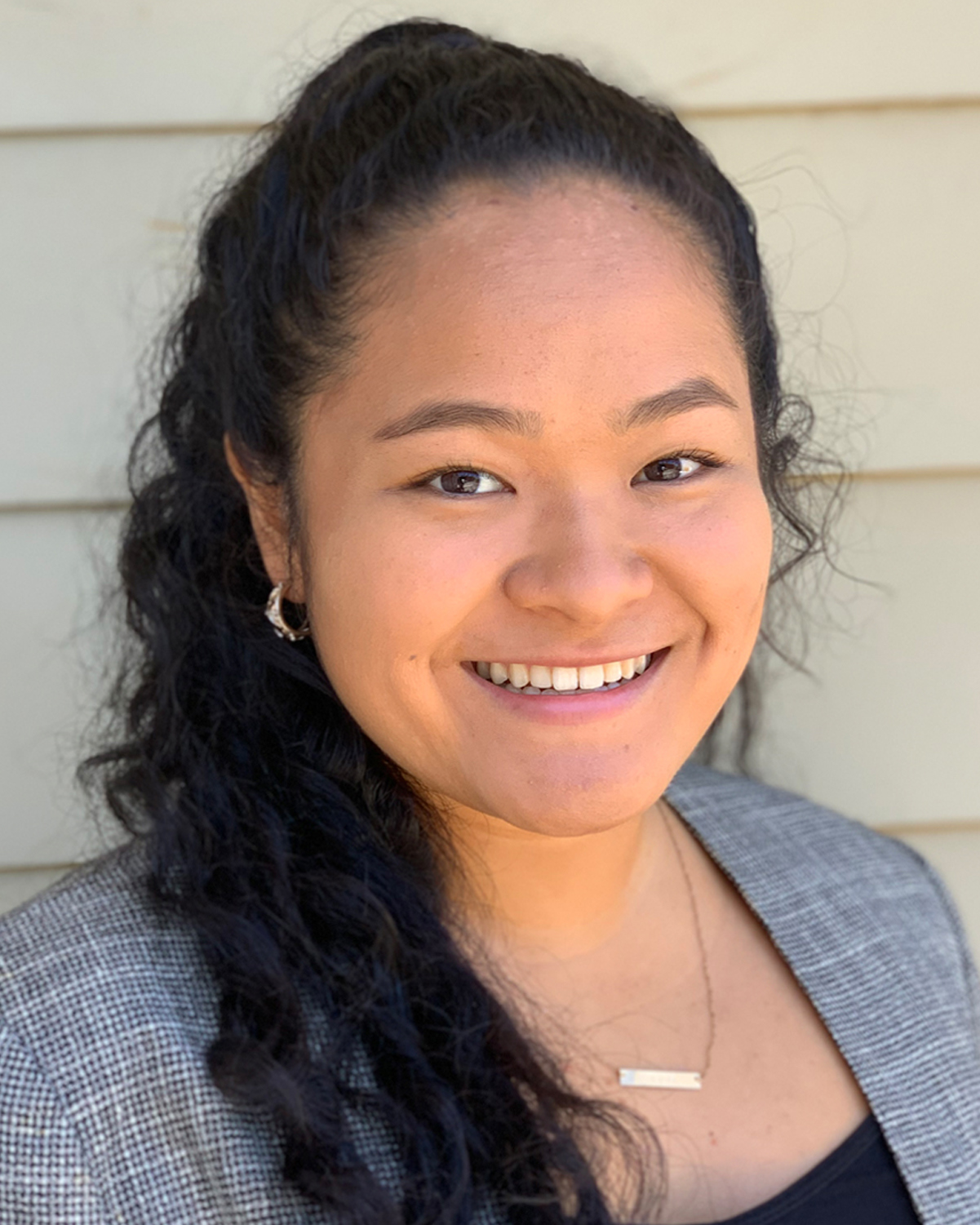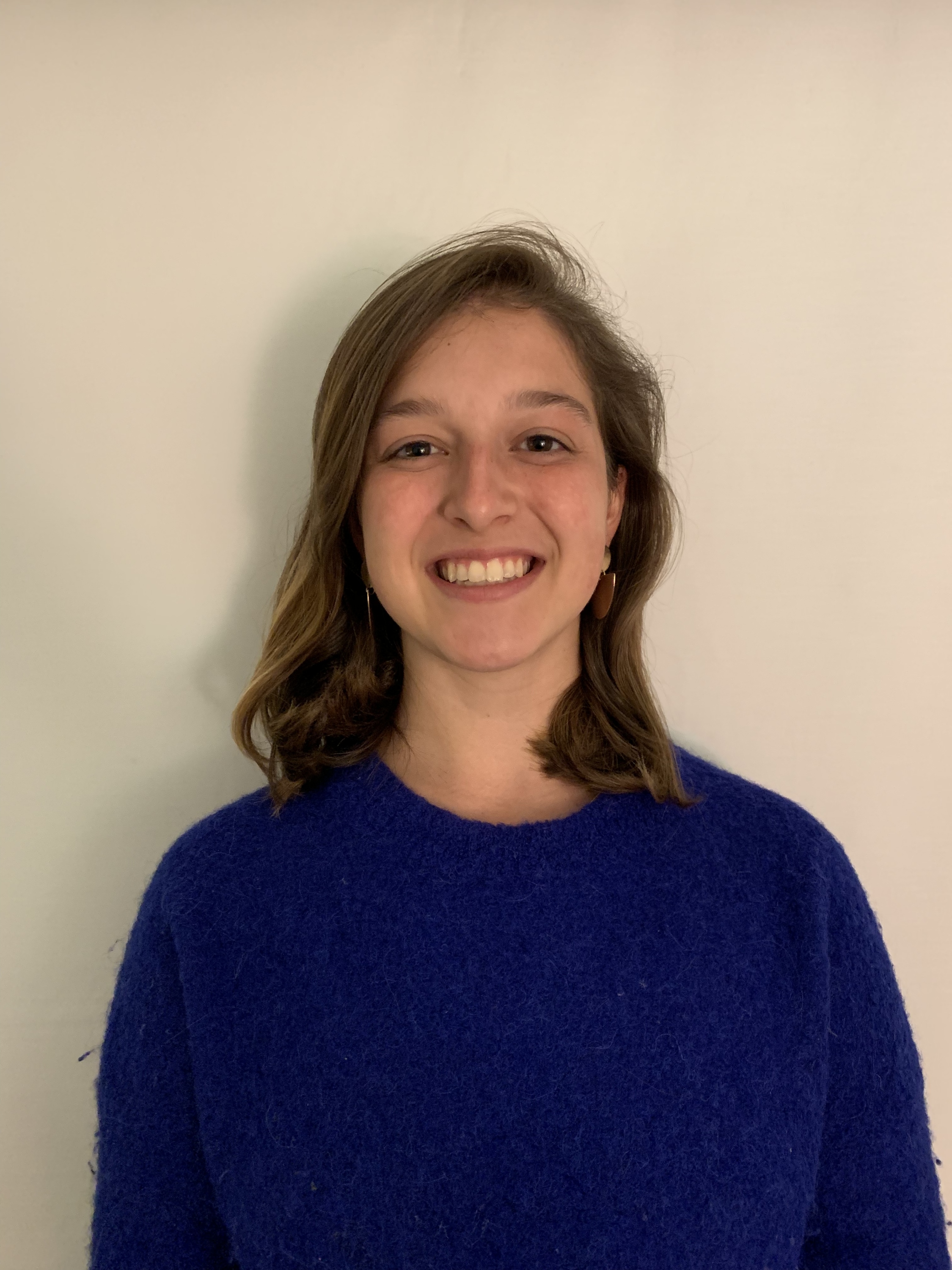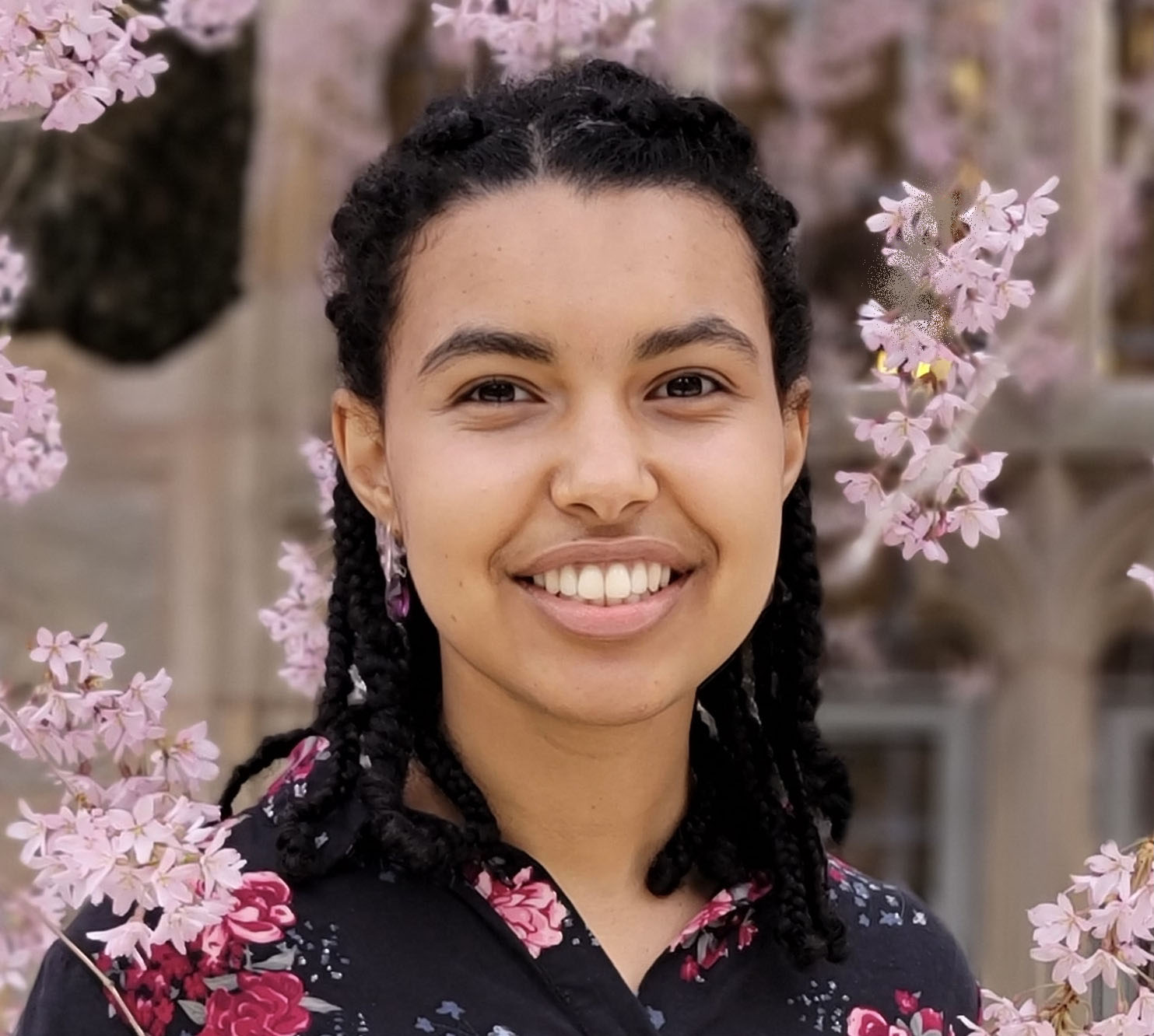Since 2015, Women’s Health Research at Yale has mentored 25 undergraduate students and counting. Along with our junior faculty and graduate students, they are taking crucial lessons about the health of women and sex-and-gender differences in health with them as they continue their education and begin their careers. Here is a sample of what our former students are up to now.
Nafeesa Abuwala, ’19
As a WHRY fellow, Nafeesa worked with the Mental health Outreach for MotherS (MOMS) Partnership to help implement a culturally sensitive program for immigrant mothers and their children to overcome barriers to care.
In 2020, she earned her master’s degree in public health as part of the Yale School of Public Health’s five-year BA/BS-MPH program. For the past two years, she has worked as a postgraduate fellow in the laboratory of Dr. Hugh Taylor, chair of Yale School of Medicine’s Department of Obstetrics, Gynecology and Reproductive Sciences. She has assisted primarily with research on reproductive endocrinology and fertility, focused on the biology of the uterus.
Before applying to medical school, Nafeesa will spend a year conducting remote public health research with one of her mentors, exploring the benefits of peer counseling and breast feeding in communities lacking financial resources.
She credits WHRY and MOMS for helping to shape her career goals to become an obstetrician-gynecologist with a strong connection to community and research to achieve social justice.
“I benefited from being around other women in science who felt similarly or had related interests,” she said. “They felt confident in what they wanted to do in a way that made me feel confident in what I want to do. And that is to advocate for patients and make sure they have agency when it comes to their own bodies.”
With WHRY, Nafeesa exercised her Spanish language skills while conducting and transcribing interviews and organizing data for qualitative research projects with MOMS. She said the experience cultivated skills she will continue to use as she pursues her goal of becoming a public health-oriented physician helping to improve health care access to marginalized people. Particularly women.
“One thing I really loved in our roundtable discussions in the WHRY fellowship was talking critically about the holes in our health science about women,” she said. “It was eye-opening then and a critical conversation we all need to have.”
Anjali Walia, ’21

“I am so grateful to WHRY for focusing my interest in the field of women’s health, particularly as it extends far beyond reproductive health,” she said, noting how medical education does not always include the evolving knowledge of how sex and gender influence so many aspects of biology and behavior. “I have been talking to clinicians about possible research on sex-and-gender differences affecting conditions that do not involve strictly female organs.”
In addition, Anjali has also sought outlets for the science communications skills she developed while writing for WHRY’s student blog. At UCSF she has joined a writing group and volunteered for a podcast devoted to sharing the voices of health care providers through storytelling. She has started coordinating an elective for students to serve as health coaches for inpatients in the San Francisco General Hospital. And she has explored opportunities with a group working to integrate sexual education into the curriculum for the medical school’s professional staff.
Ke’ala Akau, ’22
This past fall, Ke’ala began coursework toward a master’s degree in public health as part of a five-year BA/BS-MPH program at the Yale School of Public Health. She is focusing her studies on social and behavioral sciences as well as social justice and health equity.
“As someone who wants to be a physician, I feel it is important to understand the social determinants of health,” she said. “How does history influence the factors that create health disparities?”
Last summer, she received a competitive grant for a fellowship with Downtown Evening Soup Kitchen in New Haven, working with Executive Director Steve Werlin. Her work included grant writing and tracking, developing a social media strategy, and contributing to and copyediting the nonprofit organization’s newsletter.
Ke’ala plans to take a gap year before attending medical school, possibly working with a community organization while conducting research.
“I’ve embraced what is known as community-based participatory research,” she said, noting how WHRY operates with policy lab Elevate and its local collaborators. “It can be so helpful to involve community partners at every stage of the process, from choosing topics of study to analysis and dissemination of the findings.”
As a communications fellow with WHRY, she explored the importance of inclusive language and policies to increase access to menstrual products. And while she does not know precisely where her career might take her, she imagines those skills will remain valuable.
“For physician leaders within health systems, communication is a big part of their role,” she said. “Whether talking to a patient in the clinic or making an announcement or making a case within the community. It’s important for people to have the information they need to make decisions about their health.”
Cecilia Crews, ’19
Cecilia just completed her first year as an MPH student at Columbia University’s Mailman School of Public Health in New York. She is spending the summer in Ghana to work on a research project evaluating a new emergency response system in the country’s northern region.
“My interests have changed a lot in public health over the years, definitely with the help of WHRY,” she said. “I’m interested in the systems that underpin these vertical programs, such as HIV treatment or malnutrition. With my degree, I want to create stronger health systems in countries working to expand beyond an aid relationship with the international community. Promote more sustainability in their health care system.”
Her experience helping WHRY incorporate sex-and-gender research findings into the medical school curriculum has continued to shape her thinking.
“This needs to be integrated into every single conversation,” she said. “Women’s health and the role that sex, gender, race, and ethnicity play in health. To better prevent and treat diseases and conditions, we need to understand social determinants of health.”
This summer will represent Cecilia’s second service-related trip to Africa. Before the pandemic forced her to return home, she was working as a maternal and child health volunteer with the Peace Corps in Rwanda. Even as her plans take her far away, her thoughts often return to her time with WHRY back home, working with WHRY Director Carolyn M. Mazure, PhD, and her mentor on the curriculum project, Dr. Njeri Thande.
“In women’s health sections of public health classes, we might learn facts about the state of women’s health and not necessarily feel empowered or optimistic that the world can change,” she said. “But at WHRY, I learned to be more than an advocate. They helped me see what needs to change and to take action.”
Nardos Kebede, ’20
As a WHRY fellow, Nardos Kebede worked in the behavioral neuroscience lab of Dr. Nii Addy, associate professor of psychiatry, focusing on sex-and-gender differences in the neurobiological mechanisms of depression and addiction processes. Following graduation, she spent the last two years in Dr. Addy’s lab advancing this work, including projects exploring sex differences in the effects of chronic stress exposure.
“Before my fellowship with WHRY, I had some exposure to how research was conducted,” she said. “But the fellowship, this extended period of time in the lab, and having mentors focused on the health of women has helped me to articulate what is lacking and what type of research I want to do.”
This August, Nardos will begin a PhD program in neuroscience at Emory University in Atlanta.
“Moving forward in my graduate school career, I definitely want to conduct studies where sex and gender are a main focus of analysis and not just an afterthought,” she said. “I am glad to be in this field and that others are moving in this direction.”


